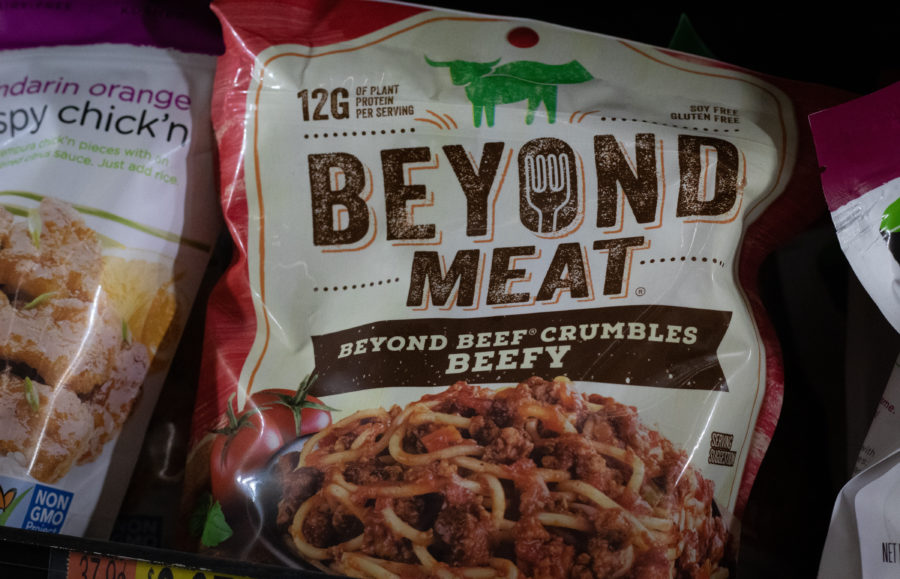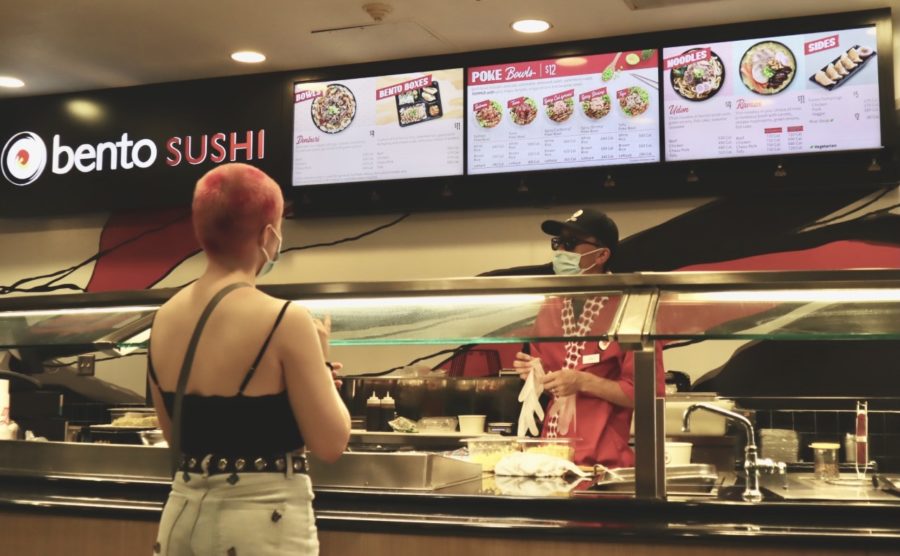The popularity of plant-based meat alternatives is exploding this year, and one of the frontrunners in the industry, Beyond Meat, is leading the charge by securing partnerships with high-profile restaurant chains.
According to the Beyond Meat website, Beyond Meat is the future of protein.
Beyond Meat products are also completely plant-based and vegan, and Beyond Meat is creating a lot of buzz in Hattiesburg especially.
“I’ve had a few of the Beyond products,” vegetarian Hampton Martin said. “I’ve never been one to go out of my way to try new foods, but if I end up at a restaurant that offers Beyond Meat or any other fake meats, I’ll give it a go.”
The plant-based protein industry is currently worth $14 billion in the US according to Markets Insider, and rapid growth is expected in the coming years. With chains such as McDonald’s, Subway, KFC and more featuring Beyond Meat products on their menus, plant-based alternatives are being thrust into the spotlight.
Research suggests that Beyond Meat products and other plant-based meat alternatives are especially popular among young people.
Ethan Brown, founder of Beyond Meat, recently said 93% of people purchasing Beyond Meat products are not vegan or vegetarian. Brown said he sees this as a really important breakthrough. Since these people are not buying the products because of special dietary needs, one might question why they are purchasing the products at all.
Beyond Meat products and other plant-based meat alternatives are more environmentally-friendly than real meat. Beyond Meat patties produce 90% fewer gas emissions than a beef patty, 46% less energy, 99% less water and 93% less land, according to the Beyond Meat website.
It is no secret that young people care about the environment. A 2018 Gallup analysis found that 70% of adults aged 18 to 34 say they worry about global warming as opposed to 56% of those aged 55 or older. The sustainability of Beyond Meat products appeals to today’s youth in a big way.
According to an article by Alexandra Sexton published in “Gastronomica: The Journal of Critical Food Studies,” however, Beyond Meat must be careful of how they market their products.
“Yet as animal meat has become increasingly linked with environmental, health, and ethical concerns, Beyond Meat is having to negotiate a careful balance between positioning its products as meatlike in some respects and not meatlike in others in order to gain consumer adoption,” Sexton said.
Beyond Meat is attempting to maintain a delicate balance. It must appeal to unconvinced meat-eaters and attempt to convert them to protein alternatives by keeping the taste and texture of the products similar to meat, but also be sure to distinguish the sustainability and eco-friendliness of its products from real meat.
Southern Miss nutrition professor Carol Connell said Beyond Meat products are not necessarily healthier than real meat.
“As a dietitian, I favor eating whole foods whenever possible, but I don’t have anything against having a plant-based meat alternative sometimes,” Connell said. “I also think more plant-based meals during the week is a good way to promote a more sustainable environment.”
According to Melissa Covington-Olsen, Sustainability Coordinator at the Office of Sustainability, when it comes to plant-based alternatives, it is important to do some research.
“Now that eco-awareness is on the rise, the demand for greener products is rising too,” Covington-Olsen said. “People want to buy products that have the least impact on the environment, are not tested on animals, livestock that are treated humanely and produce that is not treated with chemicals.”
Covington-Olsen said that to meet the criteria, companies are trying to keep up with the demands of a more eco-conscious and eco-friendly society, which has led to many companies claiming to be green when in reality they are not.
Senior entrepreneurship major Bryan Sonnier is pescatarian. Sonnier is optimistic about the future of plant-based alternatives but remains skeptical.
“I like the idea of eating plant-based meat substitutes because it gives the option of being able to still eat the same meals, but in a healthier way,” Sonnier said. “I feel that fast food chains are making efforts to offer vegan options, but there is something sketchy about it. For example, Burger King is offering Impossible Whoppers, but who’s to say they aren’t cooking those whoppers on the same grill that they grill the actual meat on?”
Beyond Meat is now being sold in more than 15,000 restaurants, hotels and universities.































